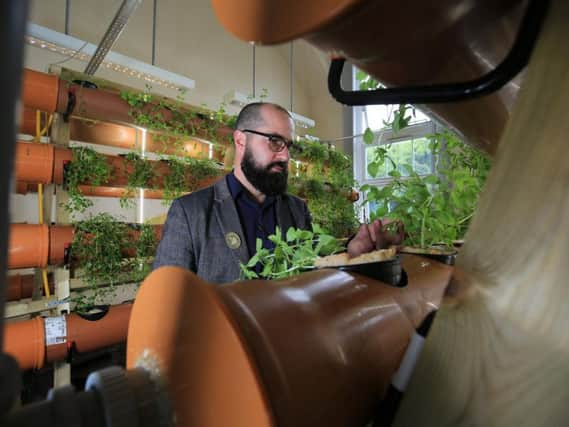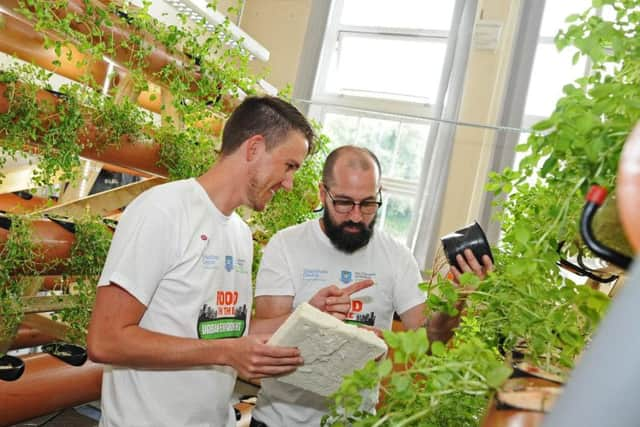Sheffield scientists are growing food ten times faster without soil at an urban farm in Tinsley


Some 24 billion tons of fertile soil is being lost globally to erosion every year and such is the mounting crisis that academics at the University of Sheffield predict the UK has fewer than 100 harvests left.
Enter hydroponics, the science of growing plants using nutrient solutions in a controlled unit without using soil. It is a ground-breaking technique that is now gaining greater traction internationally as scientists explore ways of ensuring the world does not go hungry in the future.
Advertisement
Hide AdAdvertisement
Hide AdAn attempt to harness the potential of hydroponics is underway on the border of Sheffield and Rotherham, where a team of scientists are using a disused building at the former Tinsley Infant School to grow a range of fresh produce, from salad to tomatoes, using specialist foams that chemically, physically and biologically resemble soil - a product developed by University of Sheffield PhD student Harry Wright.


Such has been the success of the so-called “urban farm” project to date that scientists have found that they can grow plants up to 10 times faster than in soil.
A public open day at the facility was held on Saturday, where project leader Jacob Nickles, a knowledge exchange associate from Sheffield University’s new Institute for Sustainable Food, explained how the system worked.
“This technology is the way forward,” Mr Nickles said.
“By 2050, we are facing having to feed 10bn people worldwide and we don’t have the space or resources to do so. Both hydroponics - and aquaponics to raise fish - solve a number of issues in one go.
Advertisement
Hide AdAdvertisement
Hide Ad“For example, you can build these units upwards rather than outwards.”
He said there was “absolutely” still a place for traditional farming methods but it was important globally to help soils recover.
“The whole purpose of using synthetic soil is an attempt to move away from conventional soils,” the scientist explained.
“It is estimated that 35 Mount Everests worth of soil a year is lost to erosion. We need to give our soil time to recover by pulling some of the growth away from traditional technology.”Mr Nickles has grand hopes for the technology.
Advertisement
Hide AdAdvertisement
Hide Ad“The unit we have here is small at the moment but an ambition for the future is to repurpose an derelict urban building, like a warehouse, so that people can use it for hydroponic growing.”
He anticipated a mixed reaction to soil-free food production from the public.
“Most people mistrust something foreign to them but we have done a lot of analysis and this system can produce food that is just as healthy, if not more so. It’s about getting the knowledge out there.”